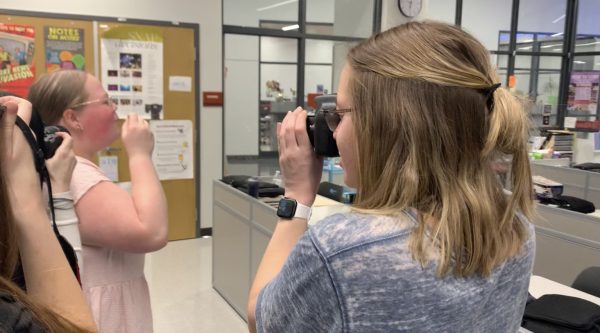Language teachers share experiences after studying abroad
Hello world In the language department, the language teachers have constructed a wall with different ways to say hello in multiple languages. The teachers range from Spanish, French and German speaking classes.
March 16, 2022
Some teachers who have studied abroad during college have argued that studying abroad was the experience that taught them the most about the language that they wished to teach and was really their “true test” to see if they were ready.
The process of getting into a study abroad program
The process of being accepted into a studying abroad program can be lengthy and selective.
According to the IES website, it states that it [the IES program] is the number one studying abroad organization.
Sandra Mitchell is a German native speaker, who traveled to the United States and began her teaching career here.
“The program I went through was called EurAuPair. It was a great, affordable way for me to live in the United States and experience American culture. You get placed in a family for 13 months, during which you “work” for 12 months and the last month can be used to travel before returning to your home country. While here, you are part of the family and usually participate in anything they do, e.g. vacations, day trips, family gatherings, daily meals, etc. The family pays for your trip here, let’s you live with them, usually provides a car, and weekly “pocket money.” In return you “work” up to 40 hours a week taking care of any children the family has, complete light house work, provide transportation if needed, prepare meals, and generally entertain the kids. The kids’ ages can range anywhere from 3 months to 18 years,” Mitchell said.
The host family
When a teacher is studying abroad in a foreign country, he or she will stay with a family called a “host family.” A host family is meant to treat the exchange student as their own child. This may include taking their exchange student to the movies or going to get ice cream.
According to Exchange Student World, “When you’re a ‘host family’, you are not paid for having the student in your home.”
Spanish teacher Dane Leone spent four months during his spring semester in 2018 studying abroad in Santiago, Chile.
“The program that I went through was the IES Study Abroad program. I had a host mom, her name was Carmen Gloria. She has four kids if I remember correctly, but they were all adults when I was there with their own kids,” Leone said.
French teacher Veronica Skomra also had an experience studying abroad. Skomra studied in Nancy, France with her host family and is now a French teacher.
“The family that I stayed with for a few days was wonderful. They treated me like their own family. I still cherish the engraved souvenir cup that has the date of the day that I spent with the family walking around their small town. They had two toddlers and an infant in the home at the time. The father was a truck driver and the mother stayed home to take care of the children,” Skomra said.
Culture shock while studying abroad
While studying abroad, the changes between American culture and the foreign culture that one has to adapt to can be shocking; this is referred to as “cultural shock.”
According to the Oxford Dictionary, “Culture shock- the feeling of disorientation experienced by someone who is suddenly subjected to an unfamiliar culture, way of life, or set of attitudes.”
For Leone, the wages of bag boys and girls in Chile came as a shock.
“Just learning the intricate details of another culture. For example, I didn’t know that bag boys and gals at grocery stores are typically college students, and it is common practice to tip those employees because their wages are similar to those of waiters and waitresses in the US and mainly make income from tips,” Leone said. “It was also a lot more difficult than I anticipated to be away from my family for a long period of time; thankfully, Santiago is either in the same time zone or only about an hour off, depending on the time of year.”
Daily occurrences studying abroad
While studying abroad, the student’s day can look different than their day did while in their home country.
“My daily routine was fairly simple, I had a few classes a week (I think five) and they only met two days a week. In my free time I traveled around Europe and France. I studied abroad in Montpellier, France in 2005,” French teacher Megan Russler said.
However, Leone stated that his day ended up being “just not that different.”
“I mean, other than the fact I was miles and miles away from my real family, It was honestly a pretty normal day. I would wake up, my host mom would make me breakfast, then I would go to school. For lunch, we typically would go out to eat at an outdoor cafe with other students in the program and new friends we met down there,” Leone said.
A different story
Spanish teacher Patricia Leonard has a different story than others. Leonard was born in Honduras, Central America, and she moved to America at the age of 21.
The one thing that stood out to me when I moved here was the seasons. Honduras has a tropical climate: It was such a neat experience to see the seasons changing from fall to winter and from winter to spring,” Leonard said.
After her move to America, Leonard decided to become a Spanish teacher.
“I really like learning about other cultures, and I enjoy teaching about my own culture,” Leonard said.
Just as some other teachers experience cultural differences and culture shock while moving to a new country, Leonard’s experience was no different.
“Before coming to America I had the idea of America being a country with big cities, traffic and crowds everywhere. The country living in Pennsylvania contrasted with my idea of America,” Leonard said.
After five years in America, Leonard decided this was her home, regardless of where she was born.
“I met my husband while going to college here, and we decided to stay here,” Leonard said.
Favorite memories from studying abroad
Some teachers who have studied have argued that it was an unforgettable experience.
“While the first few weeks were really difficult because that was the first time [in my life] I carried out every part of my life in a second language [Spanish]. I literally had a headache at the end of the day for the first week or so,” Leone said. “However, the best part was getting to practice my language skills while learning about a culture and community that was not my own. Getting out there and having new experiences, ones that are often uncomfortable and difficult, is one of the best ways to grow as a person and learn daily.”
Russler states she felt very fortunate to study abroad. Since she has returned to America and has begun her teaching career, Russler misses certain parts about her studying abroad experience.
“What I miss the most is the fresh and healthy food that was so affordable. I also miss being surrounded by history when I walk out my door,” Russler said.
Studying abroad was a major change for Mitchell. Mitchell reminisces on her daily life and favorite parts during her experience of studying abroad.
“I was very lucky in that my host mother traveled a lot for work and whenever she did, she tended to take me and her daughter along. As a result, I was able to visit San Francisco, New York, Washington D.C., Virginia Beach, Columbus, Orlando, Phoenix….to name a few,” Mitchell said.

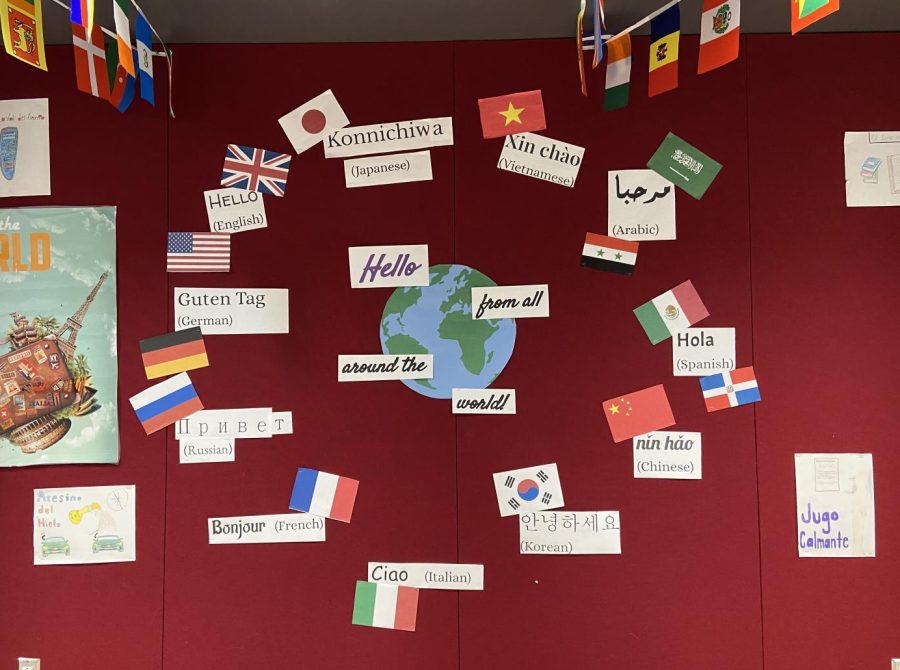
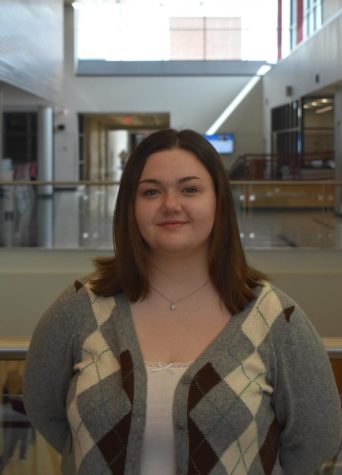




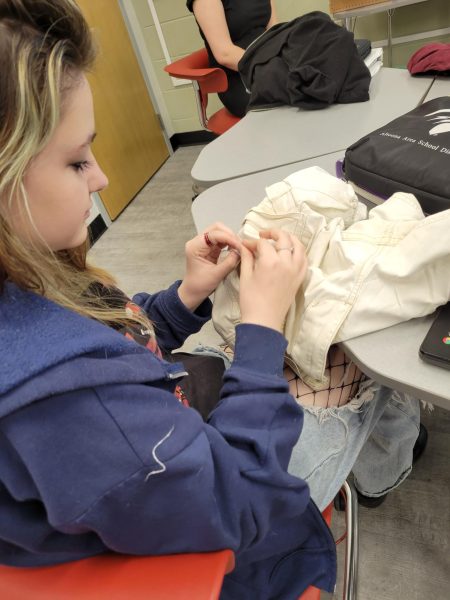
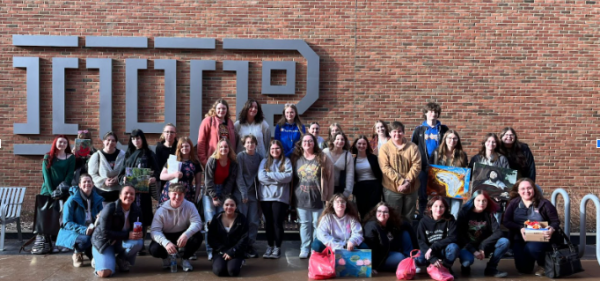
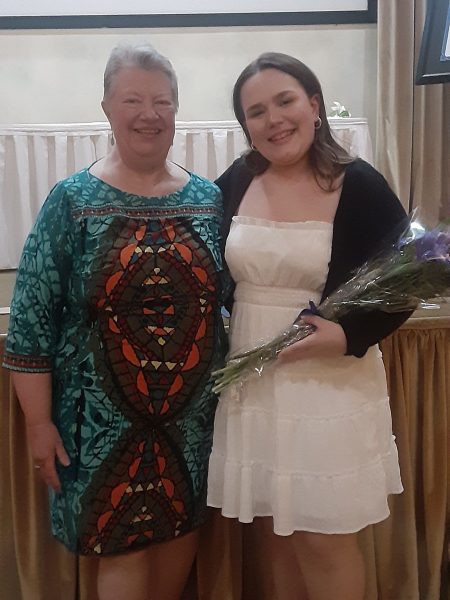
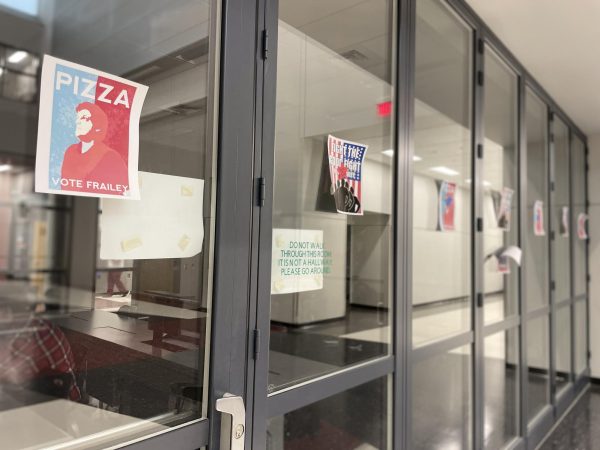

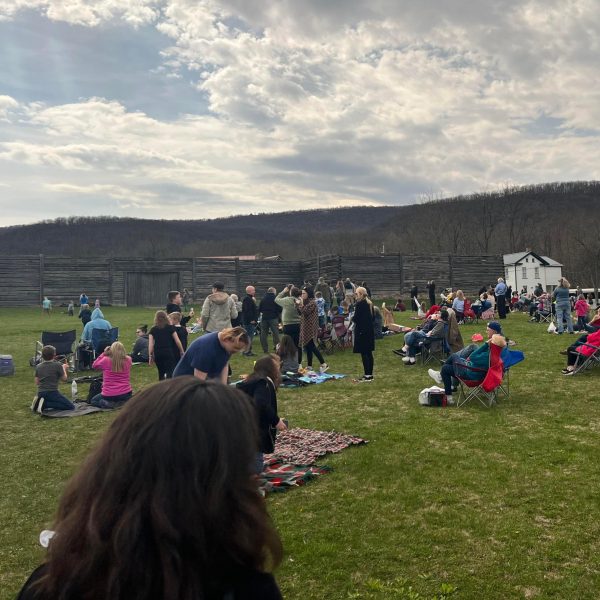

![Dedicated. Teachers who live far away commute for at least an hour to work each day. [Made with Canva]](https://aahsmountainecho.com/wp-content/uploads/2024/04/teacher-commute-picture-424x600.png)
